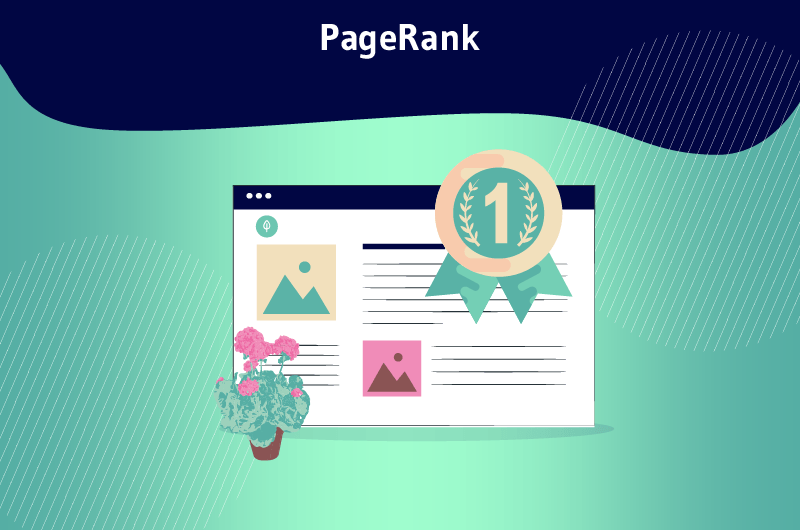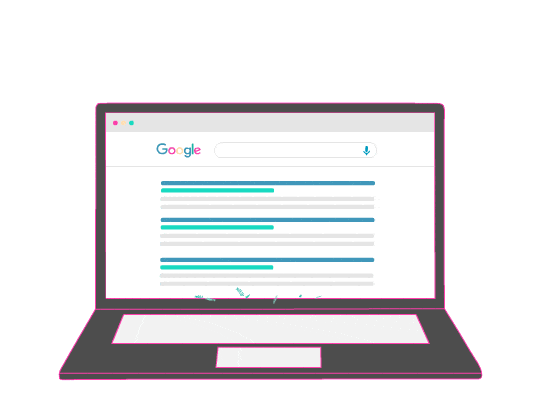PageRank refers to the Google algorithm initiated by the co-founder of Google Larry Page. Its role is to evaluate the importance of web pages on the basis of incoming links to be able to rank them in order of relevance in the search results
In order to better evaluate the web pages to rank them appropriately in the SERPs, Google has implemented the PageRank
It is a search algorithm, which has become the backbone of Google search results.
Indeed, it allows the engine to assign to each page a score between 1 and 10. This allows it to know the value of each page and to determine which one should come before the other in the SERPs.
I invite you to read this article to better understand how Google uses this algorithm to rank pages and how you can benefit from it.
Chapter 1: What does PageRank really mean?
The concept of PageRank can sometimes seem complex, but in this chapter we will address together the grey areas that can cause you problems

1.1. Definition and History
PageRank can be defined as a calculation formula that Google’s algorithm uses to determine the value of a page by examining the quantity and quality of other pages linked to it.
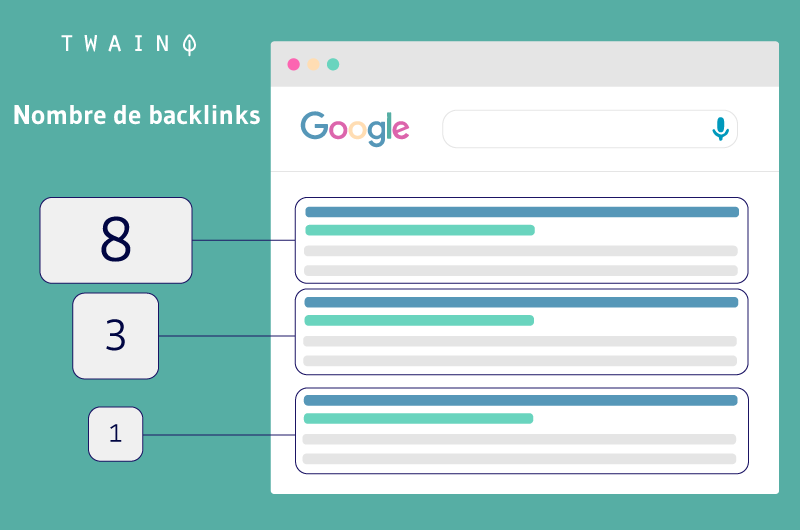
In other words, it is used to indicate the popularity of an indexed web page, based on the external links it gets
Therefore, it gives a more accurate idea of how the page is perceived by other sites. A link to your site means a vote or support for your site
It should be noted that links on higher PageRank sites were more valuable and could be sold for large amounts of money
And as the market for paid links became more and more saturated, Google began to reduce the frequency with which it referred to PageRank.
This was an era of link marketing where link purchases and sales were even visible in the Google PageRank toolbar. That is, you could see the PageRank value in the toolbar
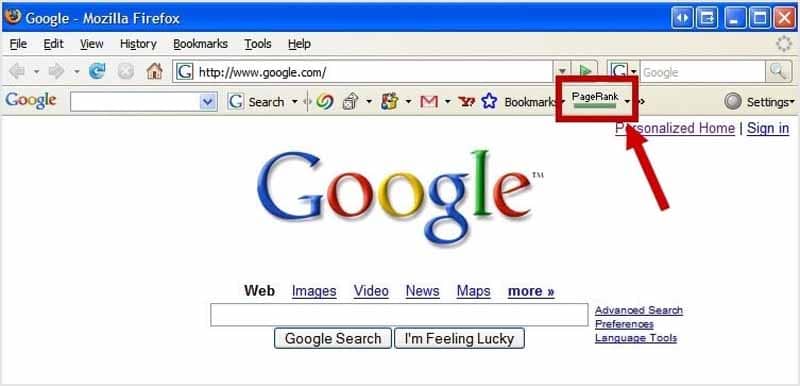
Source mangools
In 2009, Google decided to deprive the public of any physical relationship with the Pagerank. To do this, it chose to imaterialize all references to PageRank, and remove all information about PageRank from the tools that webmasters use.
In 2013, Matt Cutts announced that Google would no longer update the public version of PageRank. In other words, no one outside of Google would be able to see the PageRank of other sites
And as expected, in 2016, Google officially removed PageRank support from the search engine toolbar.
Google has made it clear that they will never publicly update PageRank again, but they admit that they still use some form of PageRank behind the scenes
1.2 How PageRank works
Since PageRank is a numerical value, it is given by Google through a mathematical formula that is seemingly simple, but extremely complex when applied to multiple websites.

A simpler way for Google to rate pages is to take into consideration the number of links on other websites, which redirect the user to your company’s blog or page
In other words, Google tries to test the quality of a web page based on the number of times people interact with it.
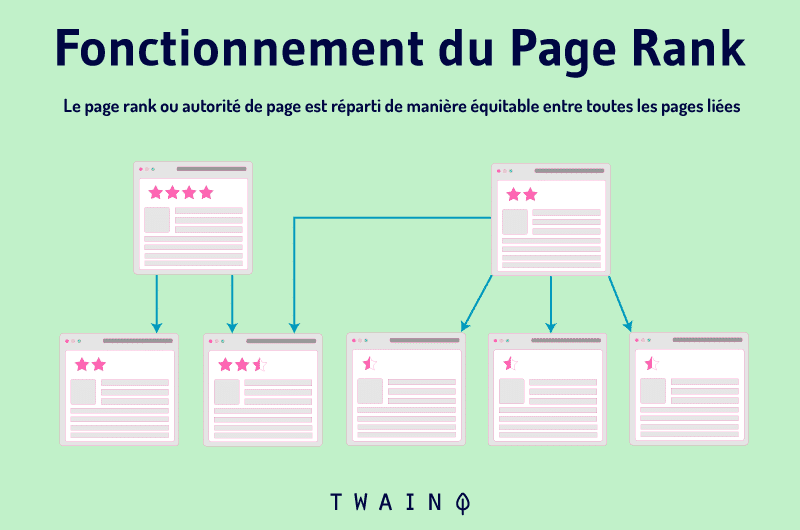
This is a particularly effective and sensible rating system because, in doing so, Google rewards websites that apparently have interesting content from an authority site
And as a result, these pages are actually very useful not only to users who perform a specific search, but also to search engines
Because what counts for the search engine is above all the quality of what is indexed on its pages
From this, we can clearly understand how important PageRank is for the search engine.
1.3. Is PageRank important?
PageRank is important because it is one of the factors that Google takes into account in the phase of ranking.
Even if it is no longer possible to see the visible PageRank and therefore we are not able to qualify it quickly, it is still important to consider it.
Indeed, improving the PageRank of strategic pages is certainly one of the objectives of SEO professionals.
PageRank is at the heart of many of today’s SEO best practices. That’s why backlinks are important and that’s why SEO experts always pay a lot of attention to internal links.
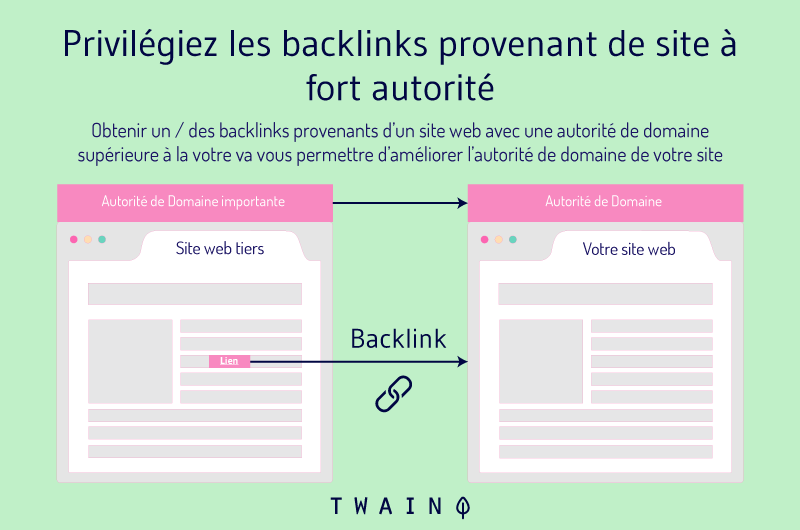
In general, it can be said that a high PageRank can help a page climb higher in the positions of the results offered by Google.
If you are going to build links, you should at least familiarize yourself with how PageRank works. It is also an important concept when it comes to internal links, i.e. the architecture of your website
PageRank flows between your own pages as well as external links. This means you need to make sure your key pages are well linked, giving them as much PageRank as possible and therefore the best chance of ranking well
1.4. PageRank and crawling
PageRank is not only considered a ranking factor, but it also has a very powerful effect on a URL
It helps determine how often it is crawled by Googlebot.
Although Google strives to crawl all the pages on the web regularly, it sometimes faces difficulties in this task. This is because the Web is huge and continues to grow exponentially.
Googlebot could not keep track of all newly published content while keeping track of changes to existing web pages. Googlebot must therefore decide which known URLs to crawl for updated content and new links.
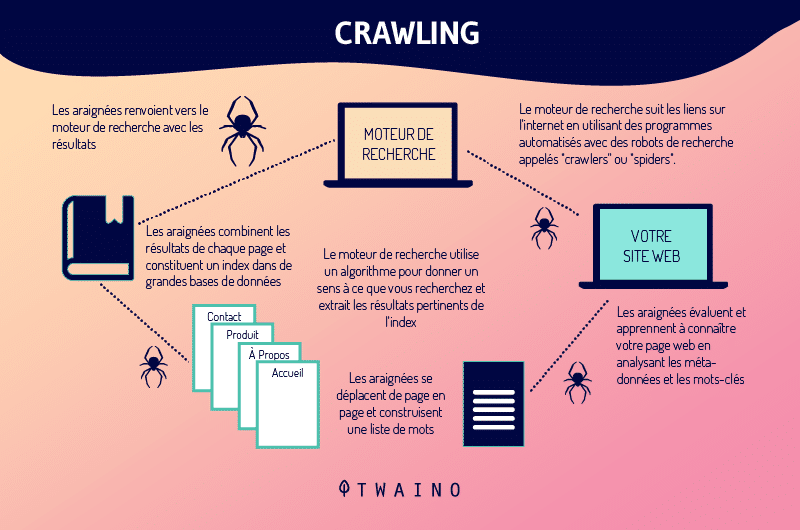
PageRank feeds this decision. Basically, the more PageRank a URL has, the more often Googlebot will crawl it. A page that has a lot of links pointing to it will be considered more important for Google to crawl regularly.
And the reverse also applies, pages with a very low PageRank are considered less important, so Google will crawl them less often or not at all
Note that PageRank is only one part of this equation, but it is good to keep in mind when talking about optimizing site crawl.
1.5. Linkbuilding and PageRank?
Linkbuilding is in fact, an organic SEO technique that consists of acquiring inbound links from websites of high authority.
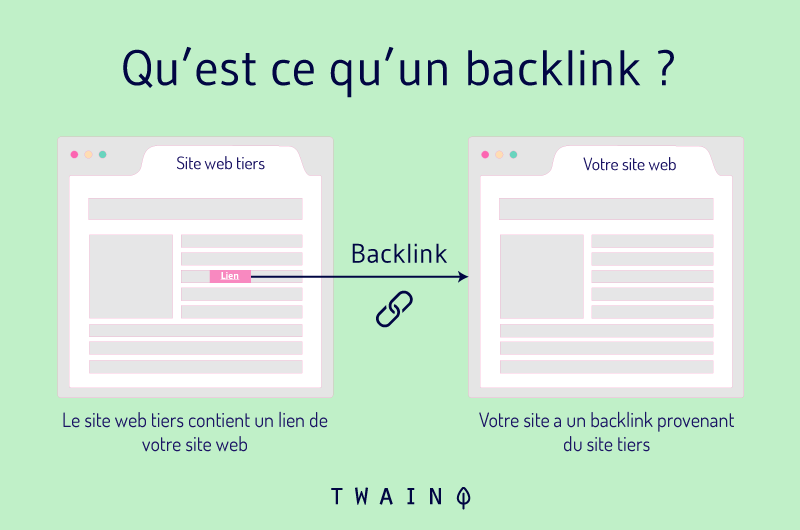
We can note the following ways to create links:
- Linking your internal pages,
- Linking content from your site to a media publication,
- Making guest blogs,
- Appear in news or interviews of specialized sites.
It is not enough to receive links for a good strategy, but it is important that the inbound links come from quality authoritative sites
Because if a website has many backlinks from pages that are in the eyes of Google spam, its PageRank score can drop significantly.
So we can summarize that if you receive a large number of links from relevant websites with authority, then it is a good linkbuilding strategy. Interesting link building results in a high PageRank score.
1.6. Difference between PageRank and link popularity
Link popularity and PageRank are both based on a large number of links redirecting to a site, but there is a fundamental difference.
In the case of link popularity, we can note that the popularity of a page on a specific keyword is simply understood as the amount of links received from outside having that same keyword as anchor text.
Speaking of PageRank, however, the link pointing to your site is also considered the PageRank of the page containing it.
It involves, in effect, a kind of vote that Google assigns to the pages of your site, based on the votes assigned to sites containing a link to your pages.
Receiving a backlink from a page with a high PageRank will therefore be more advantageous than receiving one from a page of low value.
While link popularity is therefore an index that considers the popularity of a page, PageRank represents a good mix of popularity and authority of a page and can be considered as an advanced version of link popularity.
Chapter 2: Steps to Improve Your PageRank
Increasing your PageRank may seem like a complex strategy to many webmasters, but in reality, it can be summarized in three steps.
2.1. 3 steps to increase your PageRank
Step 1: Create a good website
A website that has a good architecture and design is everything that users and search engines love.
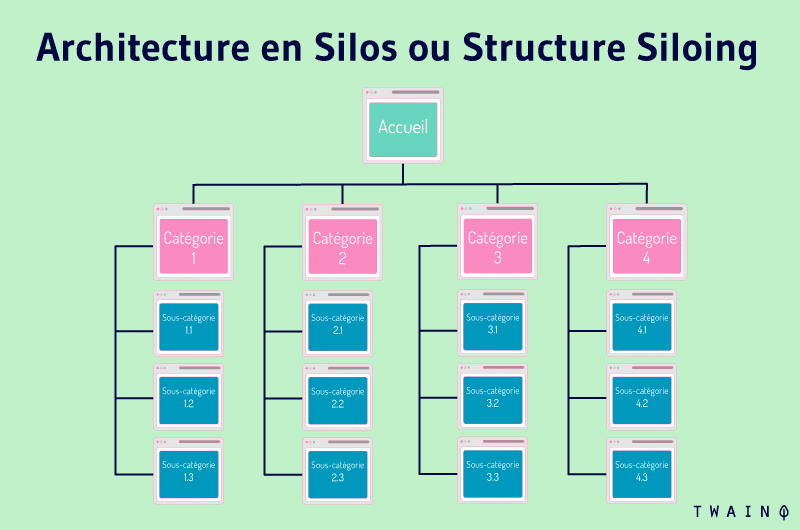
However, when the website is well designed, not only does it make it easier for search engines to index your pages, but it also provides a good user experience.
It is also important that after creating your website, you put it in the Google search console. This makes it easier for spiders to detect your web pages.
After that, it is up to you to check every day that each page is well indexed via the meta robot and robotstxt tag.
Step 2. Add relevant content
Adding quality and well optimized content may seem obvious, but I confirm that this is the most important step to increase your PageRank.
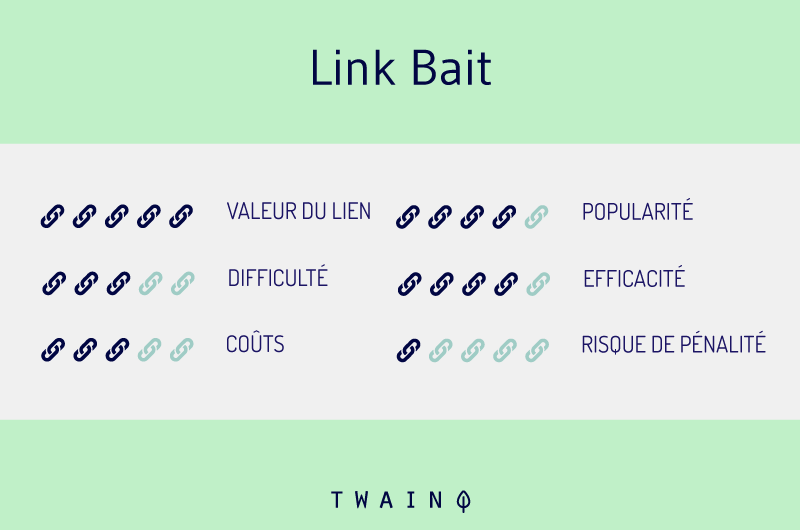
In fact, if you have pages with quality content and updated regularly, it increases your chance of attracting more backlinks and therefore, increase your authority.
Step 3. Prioritize backlinks
Links should also be a priority for you in your PageRank strategy. It should be noted that
- Backlinks are a very important ranking factor
Until now, nothing has been able to replace PageRank as a reliable measure of a site’s trust and authority
However, Google is very good at ignoring links that it doesn’t consider natural, so not all links help PageRank
In fact, according to Paul Madden, up to 84% of all links on the Web have little or no value.
In a nutshell, it’s not about how many links you have, but how much value a link could convey to your site
- Important links carry more weight
The most valuable type of link you can get is one that is present on an authority site and that a user is likely to click on.
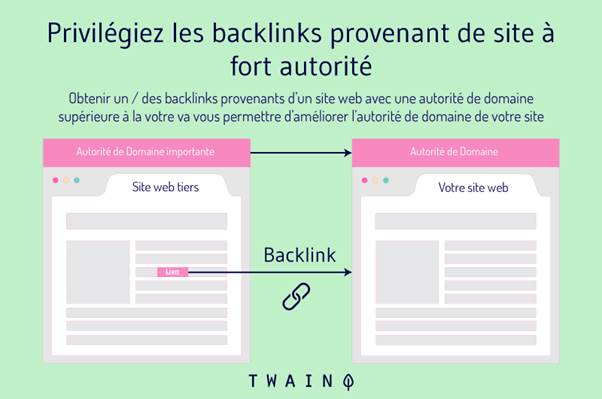
A prominent link in the opening paragraph of good, relevant content is infinitely more valuable than a link hidden in the footer of a website
So you need to optimize visible clickable links.
- Internal links are golden
It’s easy to get inundated by getting more links from external sites, but it doesn’t benefit you as much as if you optimize your own links that are circulating on your website
Look at your internal link structure and how PageRank can flow to your site.

Start with the web pages that contain the most inbound links, often your home page and some key pieces of popular content
Then find PageRank flow opportunities to the URLs you want to improve rankings for. This will also help optimize the way Googlebot crawls your site.
2.is there another way to measure website authority?
A long time ago, you could directly check the PageRank score in the browser toolbar, but not anymore
However, this does not mean that the engine ignores the PageRank. Google still uses it as a criterion in its algorithms to evaluate the authority of a site
But since Google deprived the public of the physical Pagerank, several companies have adopted their own way of estimating the PageRank to get an idea of the authority of a website.
And among these companies, Semrush’s measure, commonly known as “Score Authority” seems to be reliable because of the entire SEO community that uses it every day.
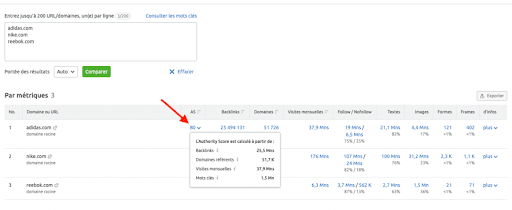
Source SEMRush
But what do we know about Score Authority from SEMRush? As its name suggests, it is a score assigned to a domain name to assess its overall quality
So you can check the authority score of a referrer site in order to assess the quality of the backlinks it redirects to your site
To assign an authority score to a site, SEMRush will take into account the following factors
- The backlink profile of the verified site, including follow links, nofollow links and data from other sites that generate backlinks to it
- The verified site’s SEO performance (organic traffic, SERP rankings, etc.);
- And the overall traffic of the site
- To use SEMRush’s authority score, go to the domain verification tool
- Enter the domain name of the site you want to check
- Click on “Search” for the search
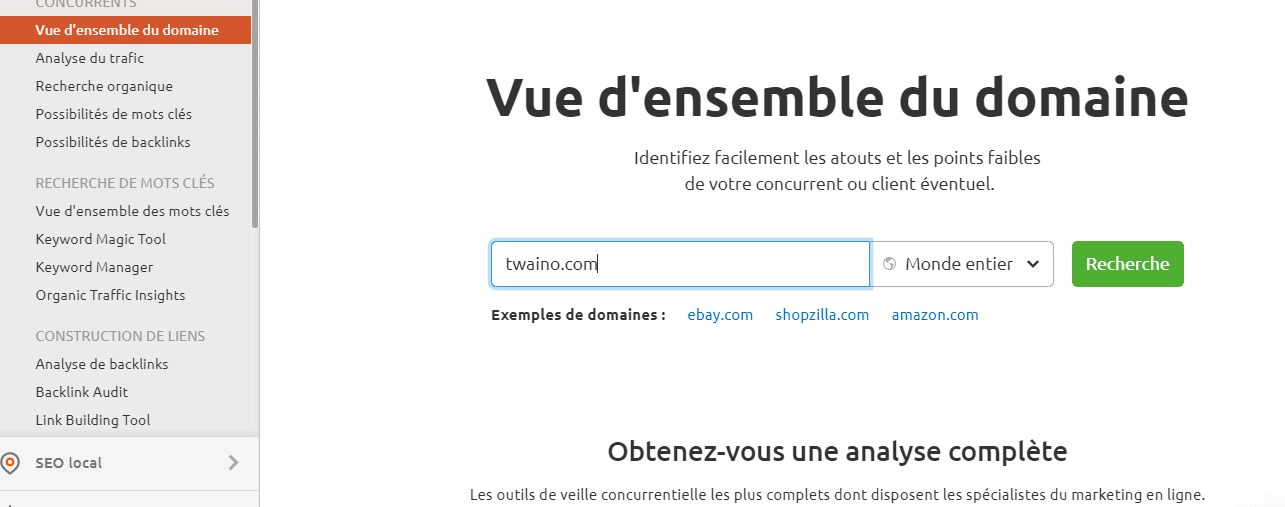
After a few seconds, the tool will provide you with a report page with the authority score of the searched site. It is the same for tools such as Ahrefs, MOZ..
But it is important to specify that the different factors mentioned above are only combined to determine the authority score of SEMRush and not the PageRank. That is to say that the authority score can never replace the Google PageRank
And the search engine does not take into account the authority score provided by SEMRush or any other company to determine the ranking of a site on its SERPs
These are just the tools designed to help you estimate the relative authority of a domain to other domains on the Net
In a nutshell
PageRank is the algorithm for calculating the value of a page from the incoming links that the site receives. A good link building strategy means a considerable Page Rank value.
Having a high PageRank score also means that your website deserves a good ranking in search results
And to achieve this, you probably have everything you need to understand about the concept of RankPage in this article.

